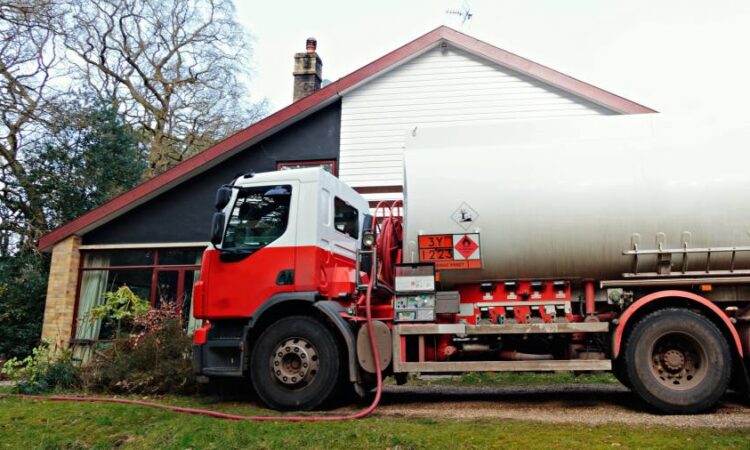
Receive free UK energy updates
We’ll send you a myFT Daily Digest email rounding up the latest UK energy news every morning.
Ministers are drawing up plans to help UK households with oil boilers to switch to cheaper green energy options without having to install expensive heat pumps.
The government is proposing to force energy suppliers to expand the provision of renewable liquid heating fuels, so that households can convert their oil boilers to run on the products.
Ministers have caved in to pressure from Conservative MPs after George Eustice, a former environment secretary, warned that rural communities would be hit hard financially by its proposed ban on the installation of new oil boilers from 2026.
Eustice had argued that there are 1.3mn households in Great Britain using conventional kerosene boilers rather than mains gas that were facing “their own version of London’s Ulez” in three years’ time.
Ministers are consulting on the 2026 ban on new oil boilers as part of the UK push towards net zero carbon emissions by 2050.
Claire Coutinho, the newly appointed energy secretary, on Friday published an amendment to the government’s energy bill that will allow ministers to place a new obligation on liquid fuel providers to supply renewable products.
The move by Coutinho has headed off the threat of a rebellion by Tory MPs who would have backed a similar amendment by Eustice.
A huge piece of legislation covering an array of contentious issues, the energy bill has provoked a two-pronged revolt among both environmental campaigners and net zero sceptics in the Conservative party, which the government is trying to quell.
Under government proposals, homes not connected to mains gas would be banned from purchasing replacement oil boilers from 2026 and expected to fit heat pumps instead.
Heat pumps are about three times more expensive than oil boilers and are “inappropriate and less effective” in many older homes, said Eustice. While installing an oil boiler starts at about £4,000, fitting a heat pump typically costs £14,000, according to the Energy Saving Trust.
Eustice had campaigned for the government to support the conversion of kerosene boilers to run on renewable liquid fuels, such as hydrotreated vegetable oil, which he claimed would reduce carbon emissions by 87 per cent.
He pointed out that the conversion process costs only several hundred pounds.
The government’s amendment to the energy bill will give ministers powers to require suppliers of heating fuels to provide a certain proportion of renewable products, such as hydrotreated vegetable oil. Ministers will consult on the proposal.
Eustice told the Financial Times that he welcomed ministers’ recognition of “the potential for renewable liquid fuels for off-grid properties” and confirmed that he would back the government’s amendment.
Ken Cronin, chief executive of the UK and Ireland Fuel Distributors Association, a trade body, also welcomed the amendment, saying it would “bring the cost of these fuels down for consumers”.
He added that pilot projects in the UK involving 150 homes over the past two years had “successfully demonstrated . . . a solution using renewable liquid fuel as a direct replacement for kerosene”.
Fuels Industry UK, which represents oil refineries and renewable fuel producers, said: “Low-carbon fuels offer a flexible and already available means to reduce carbon emissions across a range of sectors, including domestic heating.”
The Department for Energy Security and Net Zero said: “We recognise renewable fuels like hydrotreated vegetable oils could play a role in decarbonising our homes, especially as some off-grid properties are unsuitable for heat pumps.
“We will be consulting to examine the potential of these products as heating fuels, and this amendment will give us the option to support their use in the future to help achieve our wider net zero ambitions.”
The government has already bowed to pressure from Tory MPs on several other issues relating to the energy bill.
Last month 60 mostly Conservative MPs signed an amendment from former transport secretary Chris Grayling to push the government to subsidise producers of low-carbon aviation fuel.
The government has added an amendment which means it will consult on options for a “revenue certainty scheme” for sustainable aviation fuel producers.






